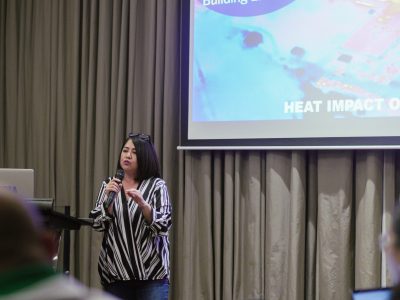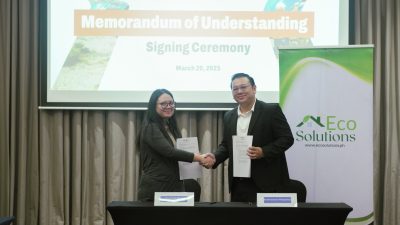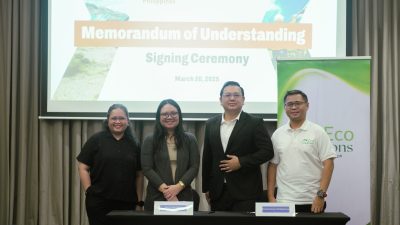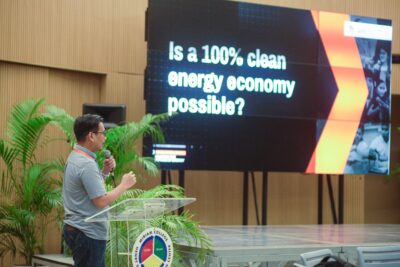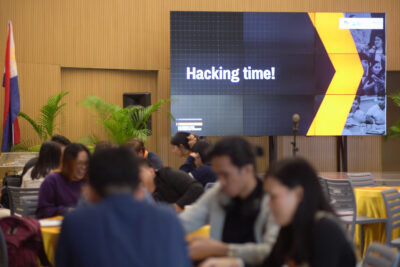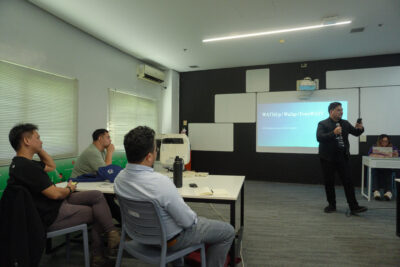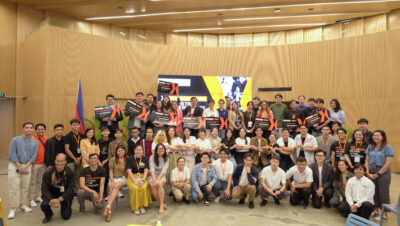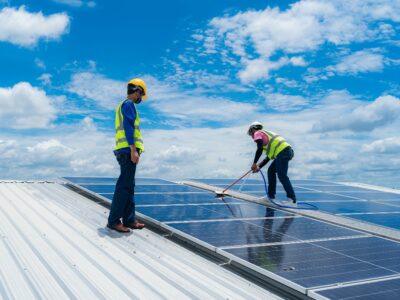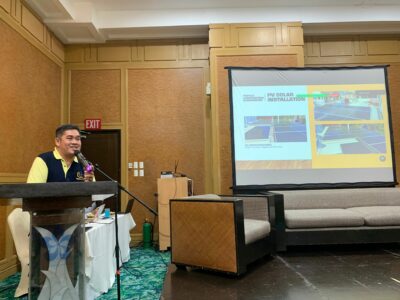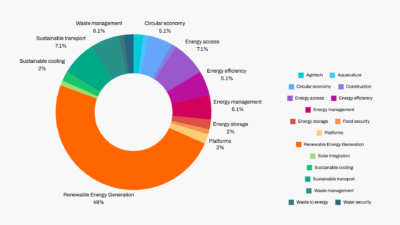The clean energy transition isn’t just happening in labs or boardrooms—it’s also being built on university campuses across the Philippines. At the heart of this movement are Technology Business Incubators (TBIs), which help entrepreneurs turn bold ideas into real-world solutions.
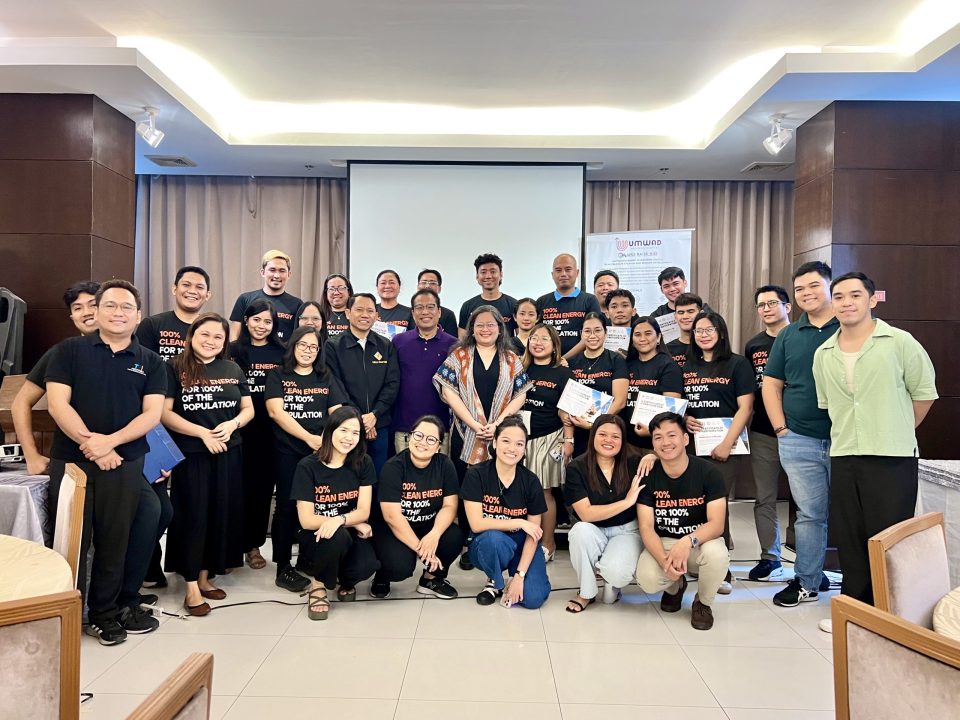
That’s why New Energy Nexus Philippines, together with UMWAD Consortium, DOST Region 6, Iloilo Science and Technology University (ISAT U), and Innovate Iloilo, recently hosted an Energy Incubation Program Training for university TBIs in Region 6. This hands-on training brought together 11 universities and institutions* from across the Visayas to build the skills, partnerships, and strategies needed to launch the next generation of climate-tech and clean energy startups.
Here’s what we learned—and why it matters.
1. 🚀 Energy innovation needs a boost from campus to market
From solar-powered aquaculture to digital energy audits, university teams in the Visayas are brimming with ideas. But many clean energy startups still struggle with business models and go-to-market strategies. TBIs are stepping up to fill this gap—but they need more support to guide founders from research to revenue.
2. 🔍 Manual energy audits are holding back progress
Several universities highlighted how energy auditing is still done manually—a time-consuming and inefficient process. Digitizing these audits presents a major opportunity for startups and researchers to develop tech-based solutions that can scale across the region.
3. 📚 Clean energy is sparking curiosity in classrooms
Interest in energy innovation is growing among students and faculty alike. At schools like the Iloilo State University of Fisheries Science and Technology, clean energy topics—from IoT to smart grids—are becoming central to research and student projects. That’s a strong sign of a rising talent pipeline.
4. 🏛️ Stronger university integration = stronger incubation
To thrive, TBIs need to be embedded into the fabric of the university—not siloed from students, researchers, or decision-makers. Active outreach and curriculum alignment can help make energy entrepreneurship a core part of the academic journey.
5. 🤝 Co-incubation is the way forward
NEX Philippines is inviting TBIs to co-incubate energy startups with us—combining resources, networks, and expertise. It’s a powerful model for supporting startups that are tackling the region’s biggest energy challenges. (This reflects NEX’s global strategy of ecosystem collaboration.)
6. 💸 Funding and experts are make-or-break for TBIs
TBIs need more than just enthusiasm. Sustained operations require access to technical experts, funding sources, and proven business models. Without this, even the most promising ideas risk stalling out before they leave the lab.
7. 🎓 Energy entrepreneurship needs to be taught
TBIs are exploring how to integrate clean energy into research, extension programs, and classroom instruction. Building climate-tech capacity isn’t just about startup competitions—it’s about transforming the entire education system to prepare innovators for the real world.
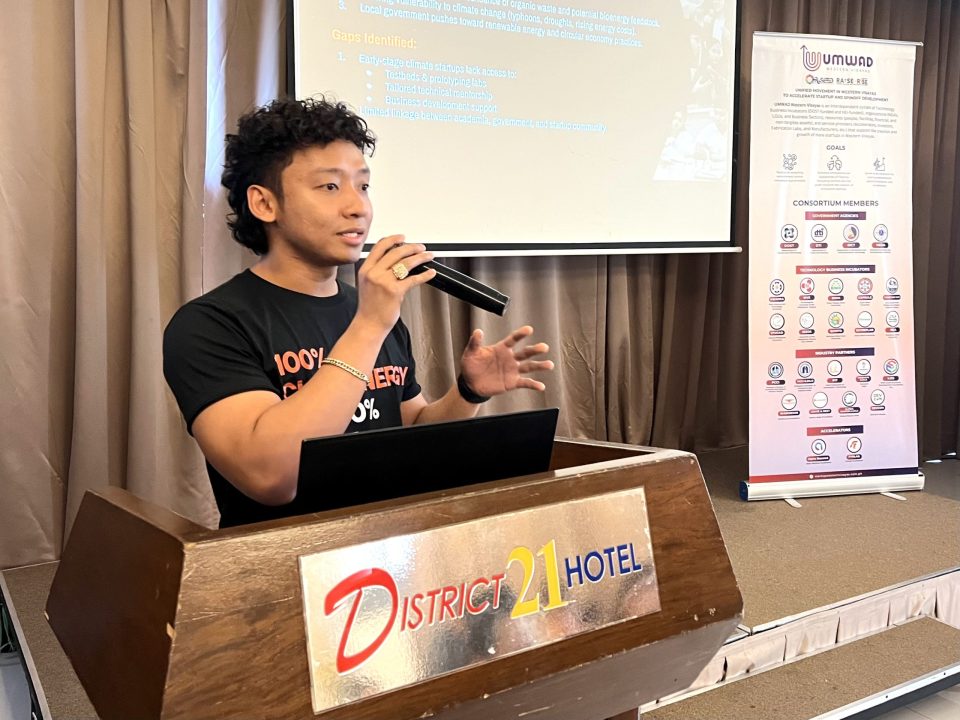
Mervin Perez of Technological University of the Philippines – Visayas HIVE TBI, presenting their startup incubation plan.
What’s Next for Region 6?
This training is just the beginning. NEX Philippines is already planning:
- Follow-up workshops on energy trends, startup mentorship, and sustainable business modeling
- Demo days and showcases to spotlight regional clean energy innovations
- Curriculum development aligned with energy entrepreneurship
- Ecosystem-building efforts that connect universities with funders, government, and private sector partners
Behind every climate-tech startup is an ecosystem that helped make it happen. And as this training showed, Region 6 is full of institutions ready to lead.
NEX Philippines is proud to support this momentum—and we’re just getting started. Find out more about our work in the Philippines!
The workshop brought together 11 TBIs and institutions across the region:
West Visayas State University BINHI TBI | University of the Philippines – Visayas Seeds TBI | Iloilo Science and Technology University KWADRA TBI | Technological University of the Philippines – Visayas HIVE | Northern Iloilo State University QUINTO | Capiz State University CAPSULE Agri-Aqua TBI | Central Philippines University CPUGAD TBI | Guimaras State University ISLA TBI | University of Antique | Coastline 5023: DOST – UP Visayas Fisheries TBI | Iloilo State University of Fisheries Science and Technology DIKE
